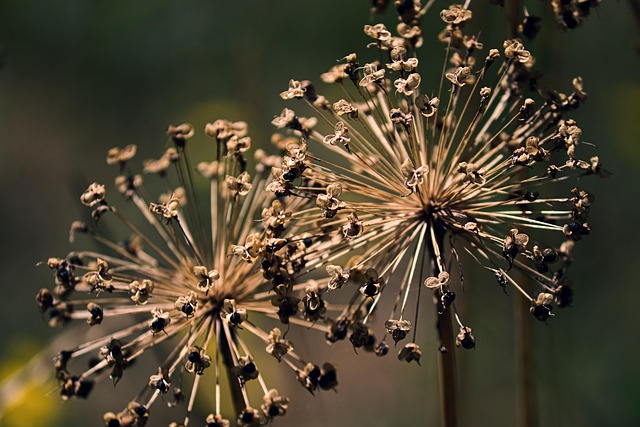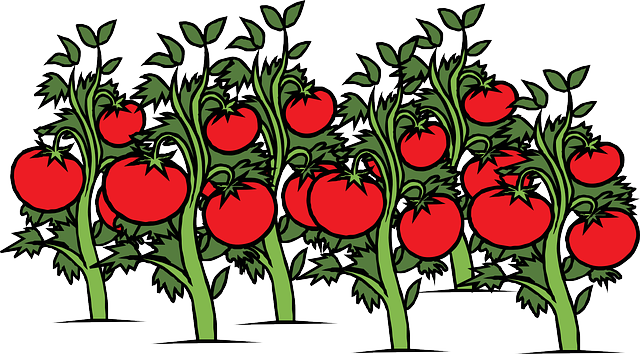Revive your garden throughout the seasons with strategic practices. Spring preparation includes clearing snow, addressing damage, and implementing proper watering & fertilization. Summer maintenance focuses on deep, infrequent watering & nitrogen-rich fertilizers for lush grass. Fall is critical for cleanup, pruning, pest control, and mulching to protect plants over winter. Winterize by insulating plants, applying organic mulch, pruning, and tailored fertilizing & pest control to ensure vibrant spring growth. Implement seasonal garden maintenance for optimal health year-round.
Managing lawn care according to seasonal growth patterns is essential for a lush, vibrant yard year-round. This guide provides practical advice for each season, from spring’s awakening of the garden (including wake-up tips for your lawn and plants after winter) to summer watering strategies that prevent overwatering, fall cleanup techniques to prepare for winter, and winter protection measures for safeguarding plants and soil until springtime. Discover optimal pruning, fertilizing, and pest control schedules tailored to seasonal needs, along with effective mulching practices for enhanced yard health during every phase of the year.
- Spring Garden Preparation: Wake Up Your Lawn and Plants After Winter
- Summer Watering Tips: Ensuring Healthy Growth Without Overwatering
- Fall Cleanup Strategies: Preparing Your Yard for Winter and Next Spring
- Winter Garden Protection: Safeguarding Plants and Soil Until Springtime
Spring Garden Preparation: Wake Up Your Lawn and Plants After Winter

As winter transitions into spring, it’s time to wake up your lawn and plants from their dormant state. Spring garden preparation involves a series of steps designed to revitalize your outdoor space after the cold months. Start by removing any remaining snow or ice buildup, ensuring your lawn gets enough sunlight. Next, assess any damage caused by extreme weather conditions and begin fixing bare spots with topsoil or fresh grass seed.
Pruning seasonal plants is crucial during this period to encourage new growth. Remove dead wood and trim back perennials to prepare them for the upcoming growing season. Fertilizing schedules by season should also be considered; applying a balanced fertilizer in early spring helps promote lush, green grass and vibrant blooms in flowers and shrubs. Lastly, implement effective summer watering tips, like deep irrigation less frequently to encourage strong root systems, and employ fall cleanup strategies to prepare for winter garden protection, ensuring your plants are well-prepared for the next cycle of seasonal changes.
Summer Watering Tips: Ensuring Healthy Growth Without Overwatering

During summer, intense heat and dry spells can be challenging for lawns, making proper watering a crucial aspect of seasonal garden maintenance. To ensure healthy growth without overwatering, it’s essential to adjust your watering schedule according to the season. In the hotter months, deep but infrequent watering is recommended. This encourages deeper root growth, allowing grass to access water further down, which is more resilient during dry periods. Aim to water early in the morning when temperatures are cooler to minimize evaporation.
Additionally, understanding that summer is a period of active growth, incorporating fertilizing schedules by season can promote lush foliage. Choose fertilizers designed for warm-season grasses, ensuring adequate nitrogen levels to support dense, green grass. Remember, overwatering can lead to root rot and other issues, so balancing hydration with these tips will contribute to a vibrant and healthy lawn throughout the summer, setting the stage for effective fall cleanup strategies.
Fall Cleanup Strategies: Preparing Your Yard for Winter and Next Spring

As the seasons change, so should your lawn care routine. Fall is a crucial time to prepare your yard for the colder months ahead and ensure a lush, healthy spring. One of the most important fall cleanup strategies is removing dead plant matter, such as leaves and grass clippings, which can harbor pests and diseases. Regularly raking or vacuuming these debris helps prevent the spread of potential winter issues.
Additionally, this season is ideal for pruning seasonal plants, fertilizing according to the changing schedules, and implementing effective pest control measures. Using organic or slow-release fertilizers in early fall promotes root development before winter dormancy. Mulching is another vital practice; it insulates soil, preserves moisture, and suppresses weed growth during the colder months. These strategies collectively contribute to a vibrant and robust garden come spring, setting the stage for a thriving summer with adequate watering tips tailored to each season.
Winter Garden Protection: Safeguarding Plants and Soil Until Springtime

As winter sets in, preparing your garden for this dormant period is crucial to ensure healthy growth when spring arrives. Protecting plants and soil from the cold season requires a strategic approach, focusing on seasonal garden maintenance. One of the key aspects is ensuring adequate insulation against extreme temperatures. This involves practices like covering sensitive plants with protective blankets or mesh to shield them from frost damage.
Additionally, establishing a proper mulching system is vital for maintaining soil temperature and moisture levels during winter. Applying organic mulch around plants can create an insulative layer, preventing heat loss and helping to retain essential water. This simple step contributes to successful spring garden preparation by fostering a robust root system. Along with mulching, pruning seasonal plants becomes necessary to remove any dead or damaged growth, promoting new, healthy shoots in the upcoming warmer months.
By aligning your lawn care with seasonal growth patterns, you can create a vibrant and thriving outdoor space. From spring’s awakening to summer’s lushness, fall’s preparation, and winter’s rest, each season presents unique opportunities for nurturing your garden. Implement strategies like timely pruning, adjusted fertilizing schedules, and effective mulching to maximize results. Remember, seasonal garden maintenance is key to ensuring healthy plants, efficient water usage, and a beautiful landscape year-round.
